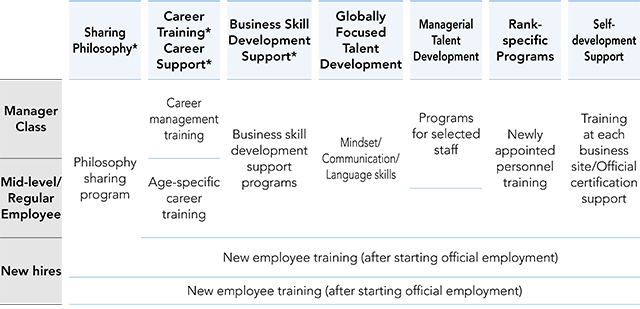Training and Education
Our Approach
SUBARU focuses on the growth of the individual, believing it will create a new SUBARU Group. Here, its basic approach to human resource development is to offer personnel systems, job rotation, and educational programs in a way that is oriented to voluntary challenge.
We are not only taking these various initiatives throughout the SUBARU Group. Our affiliated companies in Japan and overseas are also carrying out initiatives suited to regional characteristics.
Regular Reviews and Career Development
Through the operation of the personnel system, each employee’s job outcomes and performance levels for skills are objectively evaluated. In addition, under the goal management system, all SUBARU employees have an interview four times a year (for goal setting, interim confirmation, outcome confirmation, and evaluation sharing) and the supervisors and subordinates agree on the challenges necessary for growth. Both men and women are treated appropriately and there is no gender gap in the basic salary.
Training Programs
SUBARU offers a wide range of learning opportunities so that all employees can develop their skills in accordance with their career plans and levels. In order to support employee career development, we introduced new programs in FYE March 2022, establishing a system and environment so that we, as a company, support the growth of the individual.
Structure of Training Programs
- *
- New
Training Results
- Total participants: 27,348
- Total training hours: 128,554
- Average training hours per employee: 6.5
- Note:
- Self-development support and new employee training (before starting official employment) are not included in the total number of participants or training hours.
Philosophy Sharing Program
This program helps individual employees gain a deeper understanding of SUBARU’s vision and the value it offers, helping them share a sense of togetherness with SUBARU through mutual dialogue between employees. It is designed to enable employees to independently be mindful of and act toward achievement of SUBARU’s vision.
Career Training and Career Support
Career training is offered to employees as an opportunity for them to come face-to-face with their potential career paths so that they can develop their own careers independently. We also offer career management training and career consultations for managers so that employees’ workplaces and superiors can support their career development.
Business Skill Development Support Programs
All employees, from managers to general staff, are offered a choice of various business skills development support programs in accordance with their level and goals. In skills development, we encourage employee independence and their voluntary selection of programs in accordance with their career plans and their own strengths and weaknesses. In addition, by actively utilizing public courses held at external institutions, employees gain more contact points outside the company and gain new awareness, providing opportunities to learn more about the outside.
Managerial Human Resource Development
SUBARU offers training for selected mid-level and manager class employees with the aim of continually fostering the next generation of managerial human resource.
Globally Focused Human Resource Development
In addition to improving language skills, we encourage employees to develop a wide range of capabilities with the goal of acquiring cross-cultural, collaboration, and leadership skills with a view to playing an active role on the global stage.
SUBARU Group Initiatives
Initiatives to Transfer Skills
The purpose of transferring skills at SUBARU is to create human resources who have comprehensive abilities to adapt to change, standardize and sustain that standardization, and envision continuous improvement, and who can create high-quality products with safety and efficiency.
At the Gunma Plant, we are systematically cultivating technicians based on a program of skills education. In April 2021, we introduced a new basic training program that condenses the vocational training school and STS education*1 programs previously available to employees. 294 employees attended courses in this program.
- *1
- At SUBARU Technical School, employees engage in specialized practical training and courses according to their occupation.
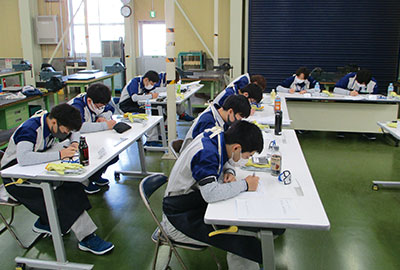
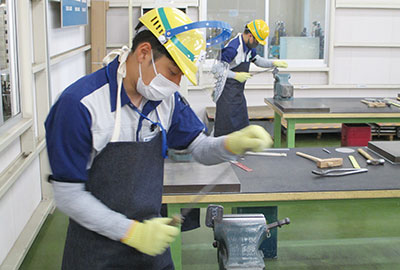
National Skills Competition*2
The National Skills Competition is designed to cultivate human resources with advanced technical skills and who can lead in the workplace.
Each year, SUBARU employees compete to be the best in Japan in three categories—lathe work, plastic molding, and automobile sheet metal. For about three years from when they join the Company, competitors strive to hone their skills, concentration, and endurance in daily training so that they can do their best at this national competition.
- *2
- The National Skills Competition is an event sponsored by the Japan Vocational Ability Development Association in which young technicians (in principle, up to 23 years old) compete to be the best in Japan. The purpose of the competition is to promote the importance and necessity of technical skills and to help build momentum toward respect for technical skills. It does this by providing young technicians who will lead the next generation with a goal to strive for, and by providing opportunities for young people to come in contact with excellent technical skills in the regions where the competition is held.
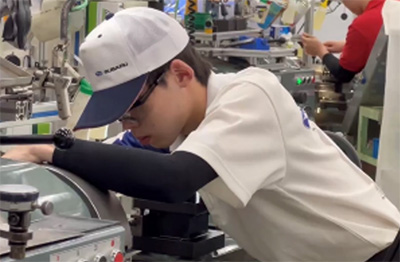
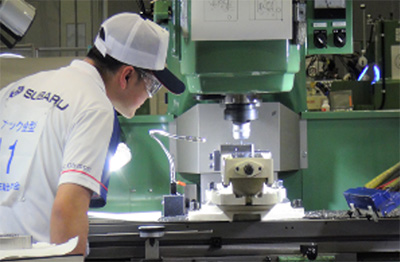
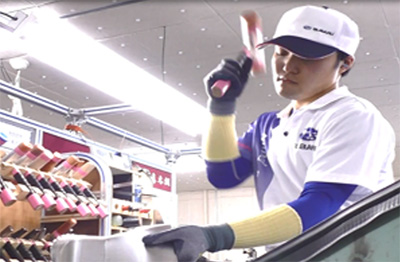
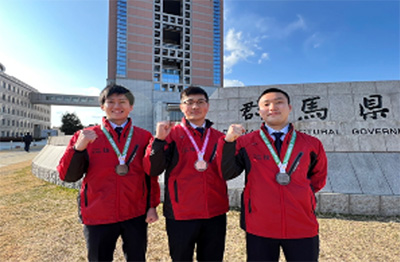
Human Resource Development Programs of Affiliated Companies in Japan
Beginning in FYE March 2023, primary responsibility for Group company human resource development has been transferred from the Corporate Planning Department to the Human Resources Department. With an integrated program, we will improve the level of our human resources throughout the SUBARU Group.
Human Resource Development Programs of Affiliated Companies Overseas
We support the development of Group company employees outside Japan by providing human resource development programs connected to capabilities needed and specialized skill development, based on regional systems, business content, and other factors.


